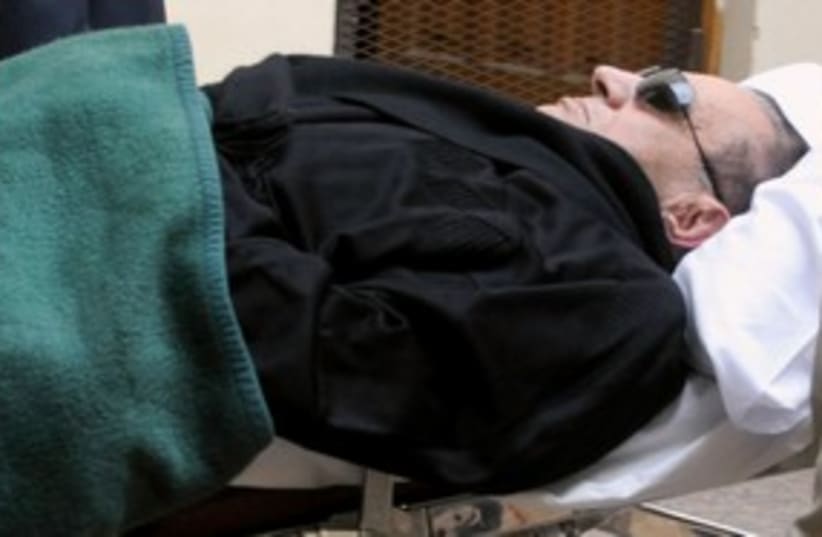When Mubarak learned of the sub-standard rates, he personally requested an amended contract, and threatened to halt gas exports if they continued under the same rate, according to the Egyptian newspaper.Since the uprising, Egyptian officials have called for a redrafted contract, with one petroleum minister saying in October of last year that new gas prices to Israel would be markedly higher.Israel felt the energy crunch this past year when gas from Egypt stops flowing, as terrorists in Sinai have blown up the supplying pipeline ten times, even when gas was not running through it.Israel is seeking to develop a domestic natural gas supply by drilling in the Mediterranean Sea, but the fruits of that endeavor will not be seen until at least 2013.Mubarak is standing trial for allegedly ordering the killing of hundreds of demonstrators during the 18-day uprising that led to his ouster in February of last year.Deeb rejected those claims in a previous hearing, saying there was no legal evidence to back the claims.Prosecutors have called for the former Egyptian leader to be hanged for his crimes. Reuters contributed to this report
'Mubarak had no role in gas deal with Israel'
Controversial deal was made by Egyptian intelligence agency, Mubarak had no part in negotiations, Farid al-Deeb says.

When Mubarak learned of the sub-standard rates, he personally requested an amended contract, and threatened to halt gas exports if they continued under the same rate, according to the Egyptian newspaper.Since the uprising, Egyptian officials have called for a redrafted contract, with one petroleum minister saying in October of last year that new gas prices to Israel would be markedly higher.Israel felt the energy crunch this past year when gas from Egypt stops flowing, as terrorists in Sinai have blown up the supplying pipeline ten times, even when gas was not running through it.Israel is seeking to develop a domestic natural gas supply by drilling in the Mediterranean Sea, but the fruits of that endeavor will not be seen until at least 2013.Mubarak is standing trial for allegedly ordering the killing of hundreds of demonstrators during the 18-day uprising that led to his ouster in February of last year.Deeb rejected those claims in a previous hearing, saying there was no legal evidence to back the claims.Prosecutors have called for the former Egyptian leader to be hanged for his crimes. Reuters contributed to this report